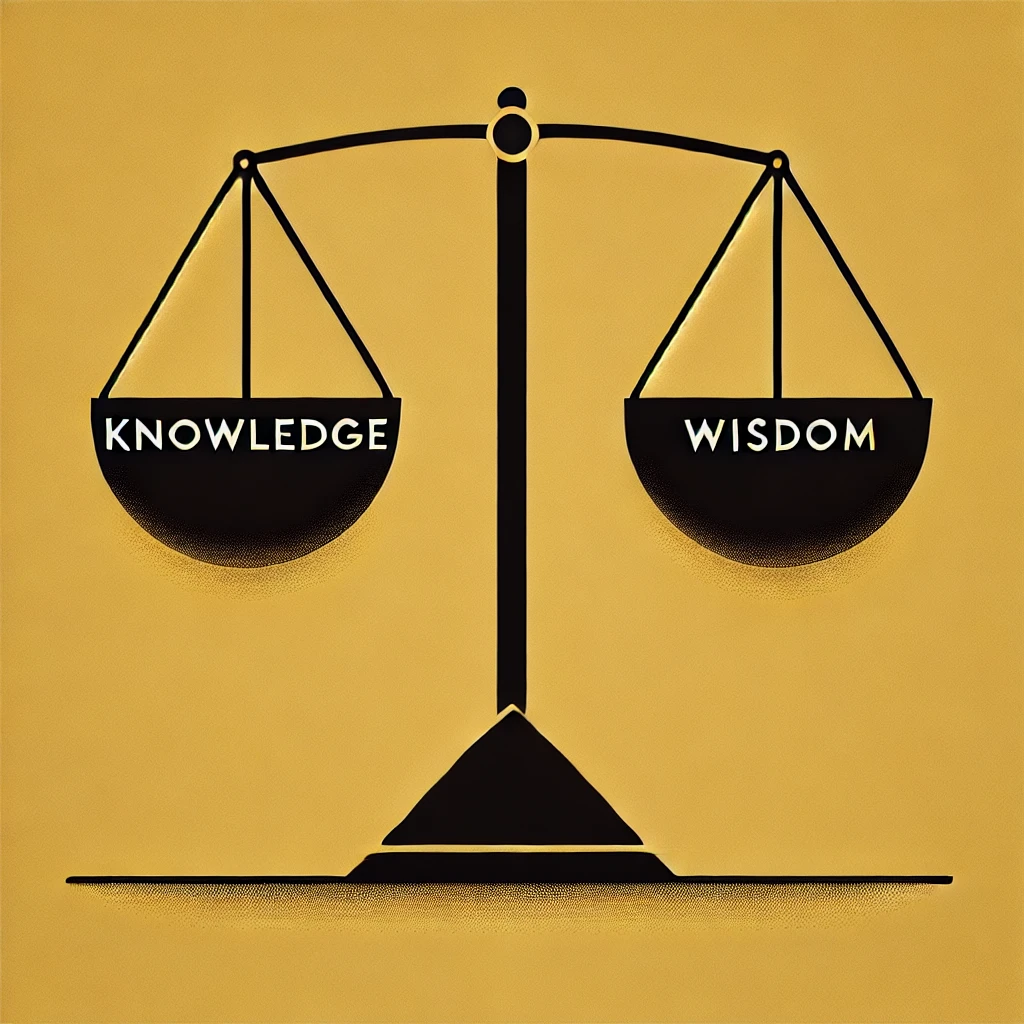The Difference Between Knowledge and Wisdom
At its core, knowledge refers to the accumulation of facts, information, skills, and data acquired through learning, observation, or experience. It answers “what” and “how”—the building blocks of understanding the world. Wisdom, by contrast, is the art of applying that knowledge with discernment, insight, ethical judgment, and a holistic perspective. It addresses “why” and “when,” emphasizing practical, compassionate use in complex, real-world contexts. While knowledge can be taught and measured, wisdom often emerges from reflection, empathy, and lived trials, transforming raw information into meaningful action.
This distinction isn’t abstract; it permeates every discipline, revealing how knowledge serves as a foundation but risks becoming rigid or harmful without wisdom’s guiding light. Below, I’ll draw from philosophy, psychology, science (including physics and biology), and major religions to illustrate these nuances. Then, I’ll explore how this ties into archetypal male (patriarchal) energy—often linked to structured, analytical pursuit of knowledge—and female (matriarchal) energy—frequently associated with intuitive, integrative cultivation of wisdom.
Perspectives Across Disciplines
To compare effectively, here’s a table summarizing key views:
| Discipline | Knowledge | Wisdom | Key Insight/Source |
|---|---|---|---|
| Philosophy | Justified true beliefs or facts about reality (episteme); intellectual grasp of concepts. | Sophia: Deep understanding of universal truths, ethical application, and the “love” of insight that bridges theory to life. | Plato viewed wisdom as grasping eternal forms beyond mere facts; modern philosophy critiques the “gap” where knowledge feels impersonal without wisdom’s humanistic intent. |
| Psychology | Cognitive accumulation of data, theories, and experiences; measurable via IQ or expertise. | Integrative trait blending intellect, emotion, reflection, and compassion; enables wise decision-making in uncertainty. | Seen as a “global psychological quality” involving prior knowledge plus emotional regulation; practical wisdom as skills for ethical choices. |
| Science (General) | Empirical facts, testable hypotheses, and models derived from observation and experiment. | Ethical, holistic application of facts to solve broader problems; critiques science for prioritizing knowledge over transformative wisdom. | Science excels at “what is,” but wisdom asks “what should be?”—e.g., using data for sustainability rather than exploitation. |
| Physics | Tangible laws, equations, and models (e.g., Newton’s mechanics or quantum probabilities). | Insight into interconnectedness and uncertainty; applying principles ethically, like in quantum entanglement revealing holistic realities. | Knowledge builds tools (e.g., atomic theory); wisdom tempers their use, avoiding “dangerous” applications without moral discernment. |
| Biology | Data on processes like evolution, genetics, or ecosystems; factual understanding of life mechanisms. | Discernment in applying knowledge for harmony (e.g., biodiversity ethics over unchecked genetic engineering). | Knowledge catalogs species; wisdom integrates ecology’s lessons on interdependence, fostering sustainable stewardship. |
| Buddhism | Intellectual grasp from study or dharma texts; knowing facts about suffering or impermanence. | Prajna: Direct, insight-based realization that liberates; applying knowledge to transcend ego and see reality’s three marks (impermanence, no-self, suffering). | Knowledge from reading; wisdom from meditative application—e.g., knowing “all is impermanent” vs. embodying it to end craving. |
| Christianity | Factual learning about God, scripture, or morals (e.g., memorizing commandments). | Divine gift for obedient, loving application; discerning right action with humility and fear of the Lord. | Knowledge learns of God; wisdom loves and obeys Him—e.g., knowing the Ten Commandments vs. living them ethically. |
| Islam | Ilm: Acquired facts distinguishing right/wrong; broad learning praised in the Quran. | Hikmah: Divine insight for correct judgments and decisions; reflection on knowledge with moral depth. | Knowledge illuminates truth; wisdom applies it justly—e.g., knowing Islamic law vs. using it with compassion and foresight. |
| Hinduism | Jnana: Intellectual knowledge of scriptures or self; factual understanding of dharma. | Realization of Brahman (ultimate reality); transformative insight merging knowledge with devotion and action. | Knowledge grasps concepts like karma; wisdom experiences unity with the divine, guiding ethical living beyond theory. |
Across these fields, a pattern emerges: Knowledge is foundational and expansive (gathering “what is known”), but wisdom is integrative and purposeful (discernment for “what matters”). In philosophy and science, it highlights a modern crisis—vast knowledge without wisdom leads to misuse, like technological advances fueling inequality. In religions, wisdom often invokes the divine or transcendent, elevating it beyond human intellect.
Tying in Male (Patriarchal) and Female (Matriarchal) Energies
Archetypal energies add a dynamic layer: Patriarchal (masculine) energy embodies yang—active, linear, structured, and analytical—forces that drive knowledge’s pursuit. It thrives on logic, conquest, and control, as seen in patriarchal systems prioritizing measurable facts, empirical science, and hierarchical institutions (e.g., universities or labs emphasizing data over intuition). This energy excels at dissecting reality—think physics equations or scriptural exegesis—but can distort into rigidity, competition, or suppression when unbalanced, repressing emotions or cycles for “progress.”
Conversely, matriarchal (feminine) energy channels yin—receptive, cyclical, relational, and intuitive—fostering wisdom’s emergence. It draws from body-based, ancestral, and holistic knowing: emotions as guides, dreams as oracles, and interconnections as truths. Feminine wisdom honors mystery, flow, and communal healing, countering patriarchal dismissal of “superstition” (e.g., intuitive biology insights on ecosystems or meditative prajna in Buddhism). Repression of this energy—through historical patriarchy labeling it “hysteria” or “irrational”—creates systemic imbalance: knowledge proliferates without wisdom’s compassion, leading to alienation, environmental harm, and inner doubt. In balance, masculine energy initiates (gathering knowledge), while feminine receives and weaves (birthing wisdom)—as in creative cycles where logic sparks, but intuition refines.
Ultimately, true mastery lies in harmony: Knowledge without wisdom is a map unused; wisdom without knowledge is insight ungrounded. Cultivating both—through reflection, empathy, and openness to these energies—empowers us to navigate life’s complexities with grace.
